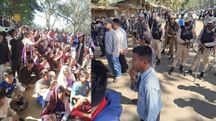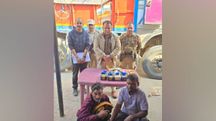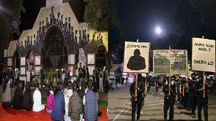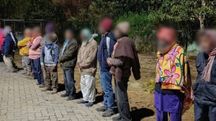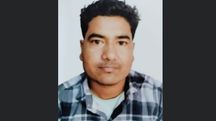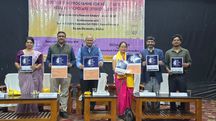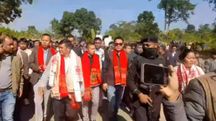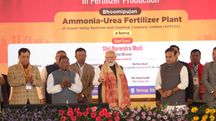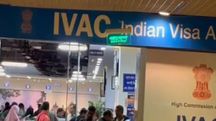National seminar advocates Constitutional recognition for Rabha Hasong Autonomous Council
Dr. Bhattacharya voiced strong support for the Rabha community’s demand, calling it a broader issue for Assam, not just the Rabha people. He assured the seminar of AASU’s full backing and urged the central government to take serious steps to counter the ongoing illegal migration.
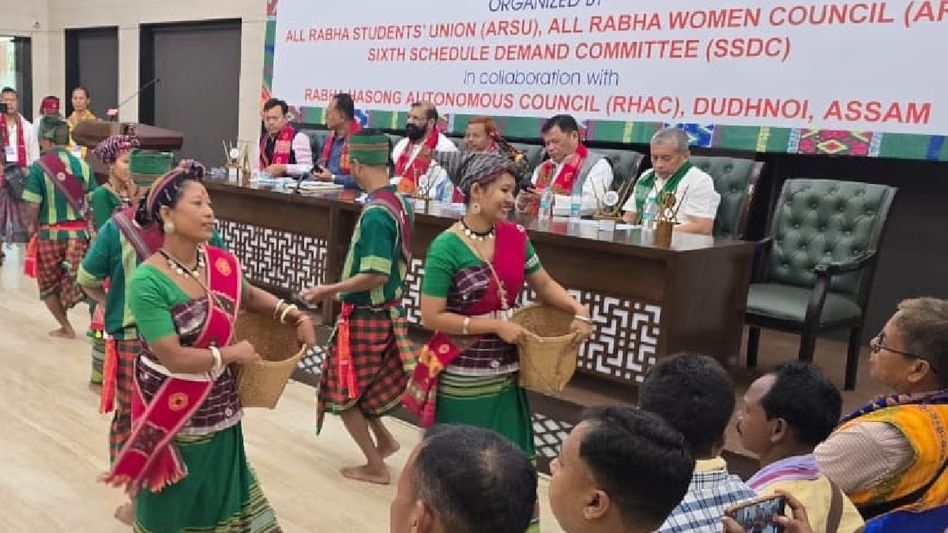
A national seminar dedicated to "Land Rights, Self-Determination, and Constitutional Status for Rabha Hasong Autonomous Council (RHAC)" took place at the Constitution Club of India, New Delhi.
Organized collaboratively by the All Rabha Students' Union (ARSU), All Rabha Women Council (ARWC), Sixth Schedule Demand Committee (SSDC), and the Rabha Hasong Autonomous Council (RHAC), Dudhnoi, Assam, the seminar sought to address the urgent need for constitutional safeguards to protect the land and identity of the indigenous Rabha community.
The seminar commenced with an inaugural address by Dilip Saikia, Member of Parliament, who highlighted the pressing challenges faced by the Rabha Hasong region due to illegal migration. He vowed to advocate for the indigenous communities' rights in the Indian Parliament, emphasizing the detrimental impact of encroachments on the demographic and cultural fabric of the RHAC area.
The seminar, chaired by RHAC Chief Executive Member Tankeswar Rabha, saw participation from notable figures, including Dr. Samujjal Kumar Bhattacharya, Chief Adviser of the All Assam Students' Union (AASU); Aditya Khakhlary, Chief Convenor of the Coordination Committee of Tribal Organizations of Assam (CCTOA); Nirupam Chakma, Member of the National Commission for Scheduled Tribes (NCST); Suhas Chakma, a renowned human rights activist; and Dr. Raktim Pator, Associate Professor at Jawaharlal Nehru University (JNU).
Dr. Bhattacharya voiced strong support for the Rabha community’s demand, calling it a broader issue for Assam, not just the Rabha people. He assured the seminar of AASU’s full backing and urged the central government to take serious steps to counter the ongoing illegal migration. Similarly, Aditya Khakhlary stressed that the Rabha Hasong autonomy movement is a pivotal tribal rights issue and appealed for unity among all indigenous communities in the region to safeguard RHAC's autonomy and territory.
Nirupam Chakma underscored the significance of the Sixth Schedule's constitutional provisions in safeguarding the rights of tribal communities and expressed support for RHAC's autonomy demands. Suhas Chakma added to the discussion by highlighting the adverse effects of unchecked urban expansion on tribal lands. He noted that recognizing land rights under the Sixth Schedule is essential to protecting indigenous communities from the pressures of development and the encroachment of outsiders.
Dr. Raktim Pator offered a historical perspective, emphasizing the need to integrate RHAC under the Sixth Schedule to secure land rights and preserve the cultural identity of the Rabha and other indigenous groups. He advocated for urgent action to safeguard the region's heritage in the face of rising external threats.
The seminar concluded with a collective resolution urging the Indian government to amend the Constitution, incorporating the Rabha Hasong Autonomous Council into the Sixth Schedule by 2026. This step, participants argued, would guarantee self-determination and protection for the tribal population.
Tankeswar Rabha, summarizing the seminar's proceedings, made an earnest appeal to the Chief Minister of Assam to expedite the process for granting constitutional status to the RHAC. He emphasized that political will is key to achieving this goal and called upon the NDA-led central government to address the concerns of the RHAC's indigenous communities. The seminar’s resolution set the stage for a sustained push towards securing constitutional recognition for the Rabha Hasong Autonomous Council, marking a significant step in the struggle for tribal rights and self-determination in Assam.
Copyright©2025 Living Media India Limited. For reprint rights: Syndications Today
